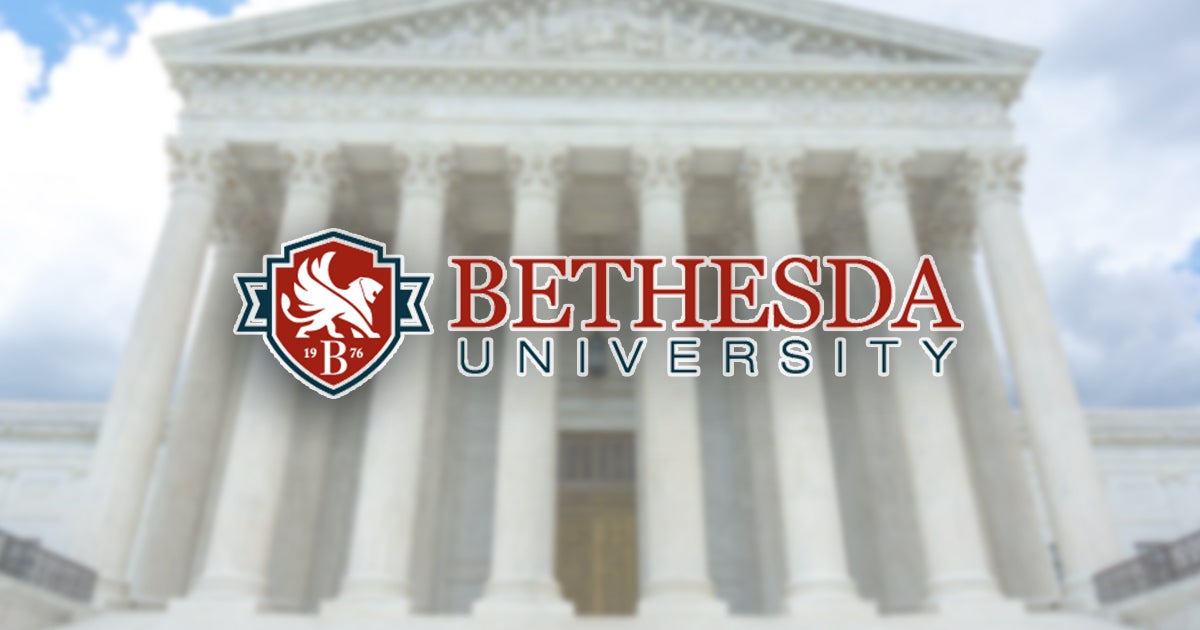
by Jorge Gomez • 2 minutes
First Liberty filed an appeal this week asking the U.S. Supreme Court to hear our case involving Bethesda University, a Pentecostal college based in Anaheim, California. The case deals with the important issue of church autonomy and the right of religious institutions to choose who will preach their beliefs.
Bethesda was deceived into thinking it must appoint board members who do not share its religious beliefs to lead the institution. The dispute arose when the university’s president wanted several board positions to be filled by non-Pentecostal members. When the rest of Bethesda’s leadership objected and ultimately let the President go, he filed a lawsuit.
California courts got involved in interpreting religious doctrine and determining who should sit on the university’s board. The California Court of Appeals ultimately made a decision about the leadership and doctrinal direction of a religious institution, which is unconstitutional. The university asked the California Supreme Court to reverse that lower court decision, but the state’s highest court declined to hear the case.
“How religious organizations choose to operate is a sacred right protected by the First Amendment,” said Jeremy Dys, Senior Counsel for First Liberty. “The U.S. Supreme Court has made it clear that the Constitution protects the independence of religious organizations to choose their own leaders, and we ask it to do so once again in this case.”
Courts are categorically prohibited from involving themselves in any matter involving the religious function of churches and ministries. There should be no doubt that houses of worship and faith-based organizations—not judges—are the ones to decide how to fulfill their religious missions and by whom.
Bethesda University’s religious identity is at stake. But the outcome of this case won’t just affect one university. It could impact religious institutions across the country.
Church autonomy affects every church, synagogue and faith-based organization. Protecting religious institutions from government interference is foundational to who we are as Americans. It’s the point of the church autonomy doctrine that the Supreme Court has recognized for nearly 150 years.
Religious freedom is in danger if the government is allowed to weigh in on decisions over who should lead churches and religious institutions. If a court can evaluate the religious character and leadership of a university, how long will it be until it tells local churches who they must hire to communicate their beliefs, teach their faith and carry out their mission?
If religious liberty under the Constitution means anything, it surely means at least this much: the government cannot tell churches, religious schools or faith-based organization who its leaders will be.